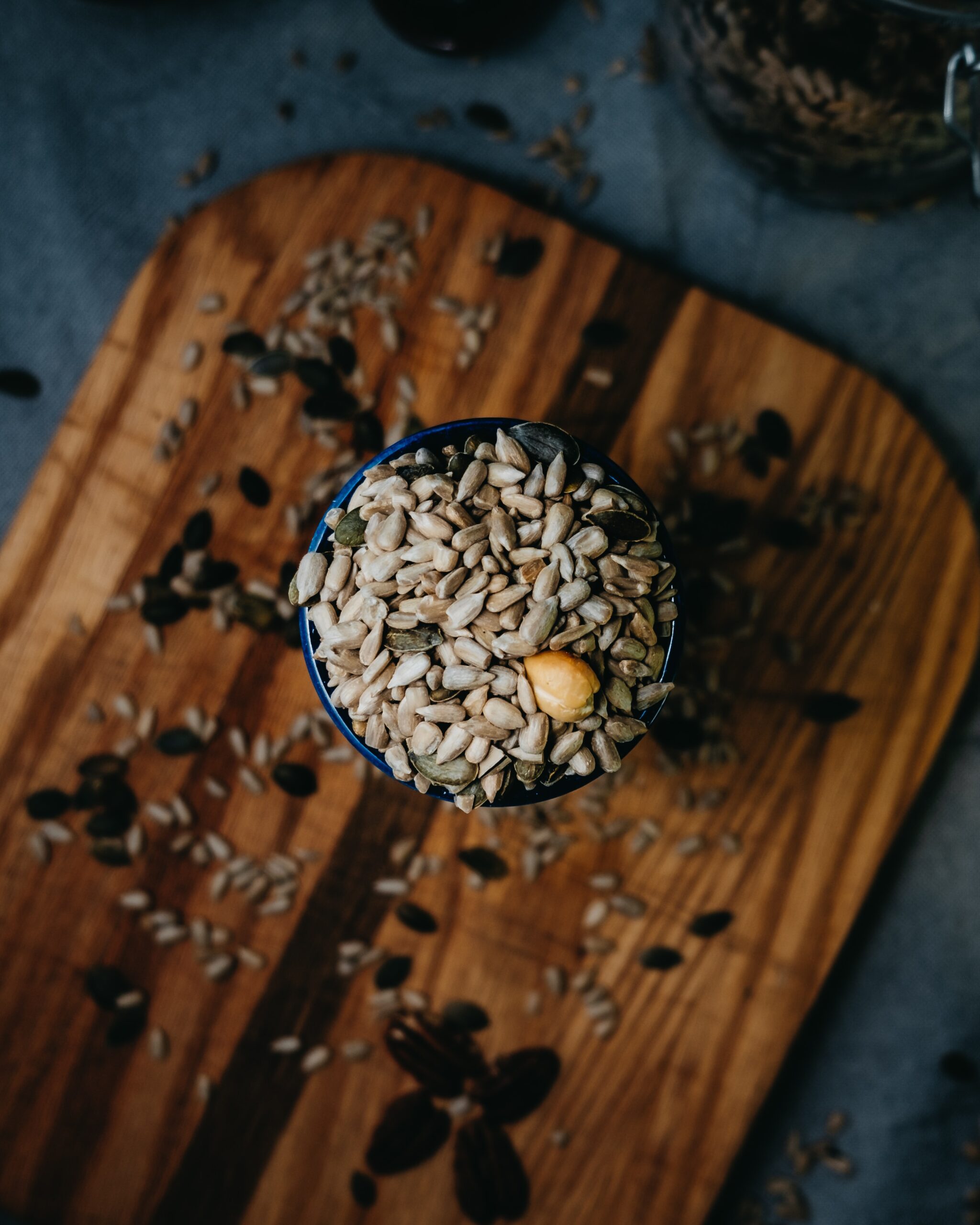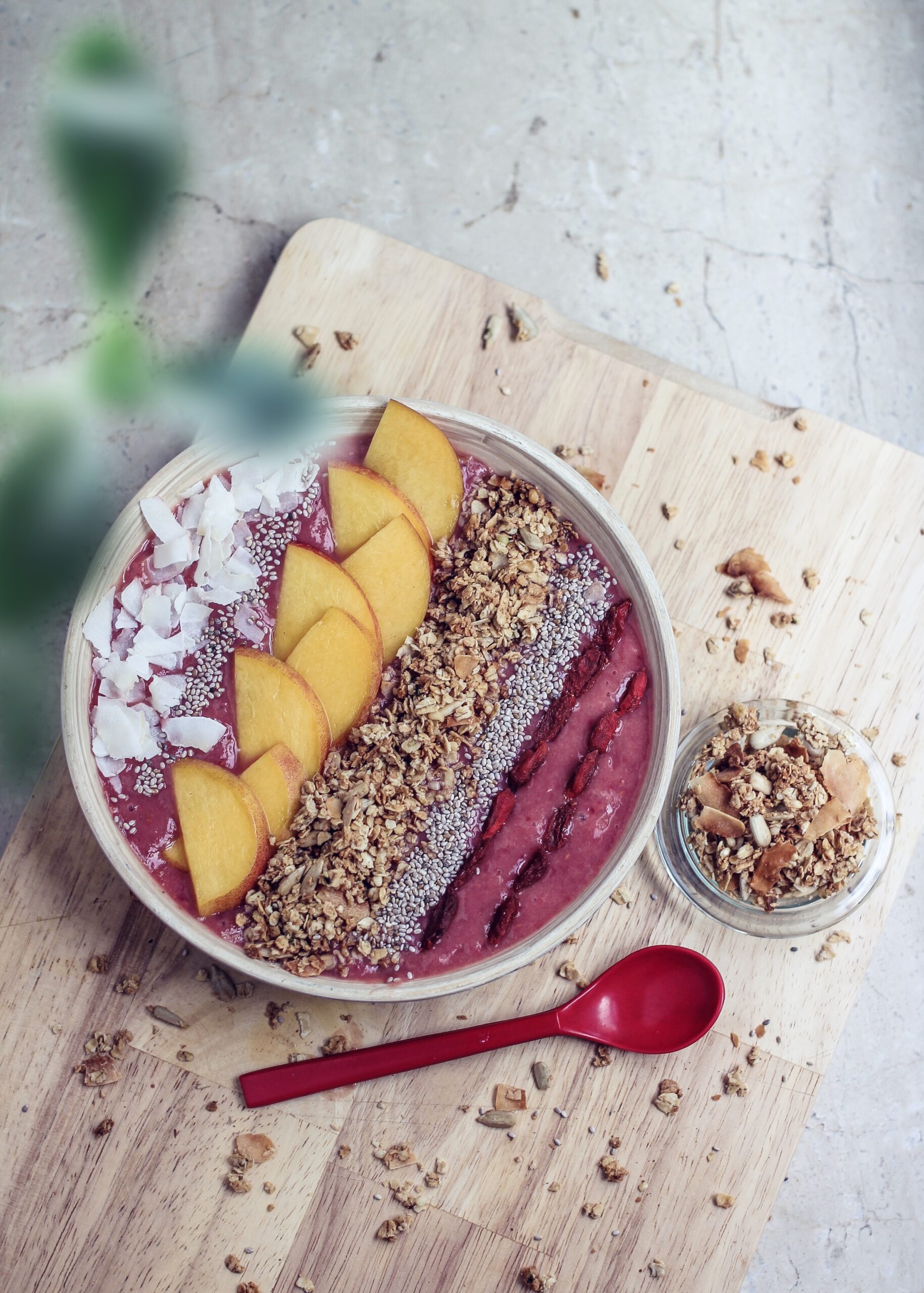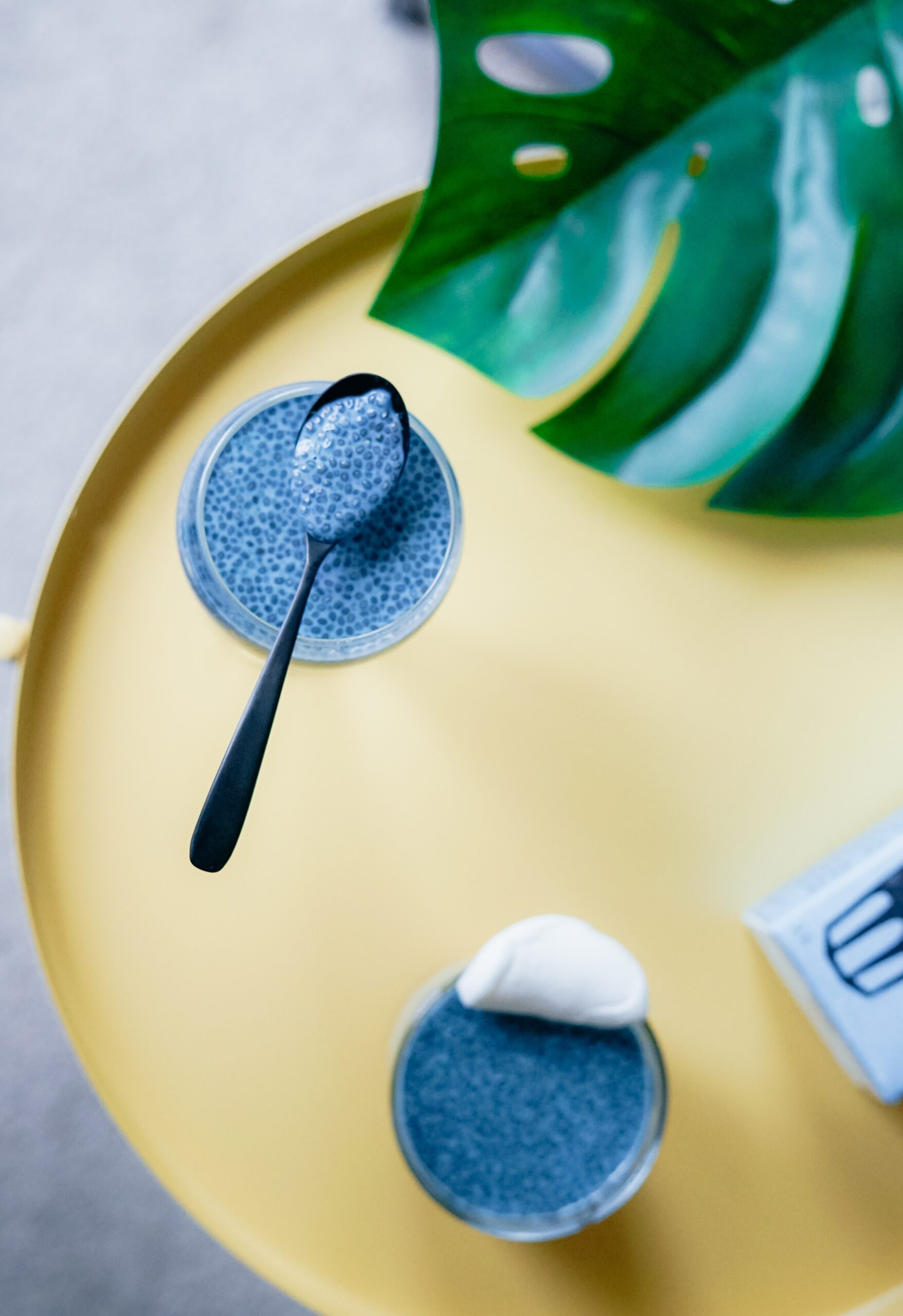Looking to shed those extra pounds and improve your overall health? Look no further than chia seeds! These tiny powerhouses are not only packed with essential nutrients but also have the ability to aid in weight loss. In this article, we will explore the various ways you can incorporate chia seeds into your diet and harness their incredible benefits for a healthier, slimmer you. Get ready to discover the secret to successful weight loss with the help of these versatile little seeds.
What are chia seeds?
Chia seeds are small, oval-shaped seeds that come from the Salvia hispanica plant, which is a member of the mint family. These seeds have been used for centuries as a staple food in Mexico and Central America and have gained popularity worldwide due to their numerous health benefits. Chia seeds are rich in essential nutrients, including fiber, protein, omega-3 fatty acids, antioxidants, and various vitamins and minerals. They are also gluten-free, making them suitable for individuals with gluten intolerance or celiac disease.
Nutritional profile of chia seeds
Chia seeds are often referred to as a “superfood” because of their exceptional nutritional content. These tiny seeds are packed with fiber, offering an impressive 10 grams of fiber per ounce. This high fiber content helps to promote feelings of fullness and can aid in digestion and weight management. Chia seeds are also an excellent source of plant-based protein, providing around 4 grams per ounce. Additionally, chia seeds are rich in omega-3 fatty acids, which are essential for brain health, reducing inflammation, and supporting heart health.

Health benefits of chia seeds
Incorporating chia seeds into your diet can offer a range of health benefits. The high fiber content of chia seeds helps to regulate blood sugar levels and improve bowel regularity. The omega-3 fatty acids found in these seeds can help reduce the risk of heart disease and lower cholesterol levels. Chia seeds are also rich in antioxidants, which can help protect your body against free radicals and oxidative stress. Furthermore, the high calcium content in chia seeds supports bone health and can be beneficial for individuals who are lactose intolerant or do not consume dairy products.
Understanding weight loss
Weight loss is often a challenging journey, but it can be achieved through a combination of a healthy diet, regular exercise, and lifestyle changes. The key to successful weight loss is creating a caloric deficit, where you consume fewer calories than you burn. This forces your body to tap into its fat stores for energy, leading to weight loss over time.

Caloric deficit for weight loss
To create a caloric deficit, you need to determine your daily calorie needs and aim to consume fewer calories than that. This can be achieved by reducing portion sizes, choosing nutrient-dense foods, and making healthier food choices. It is crucial to strike a balance by ensuring that you are still meeting your body’s nutritional needs while reducing overall calorie intake.
Role of chia seeds in weight loss
Chia seeds can be a valuable addition to a weight loss diet due to their unique nutritional profile. The high fiber content in chia seeds helps to promote satiety and reduce hunger pangs, making it easier to adhere to a calorie-restricted diet. Additionally, the protein in chia seeds can help keep you feeling full and satisfied for longer periods. The combination of fiber and protein in chia seeds can help you stay on track with your weight loss goals by reducing the likelihood of overeating.

Incorporating chia seeds into your diet
If you are considering incorporating chia seeds into your diet, there are a few things to keep in mind to ensure you maximize their potential benefits.
Choosing the right chia seeds
When selecting chia seeds, opt for organic, whole chia seeds that are free from additives or preservatives. Look for reputable brands that prioritize quality and sustainability. Chia seeds are available in most grocery stores and can also be purchased online.
Recommended daily intake of chia seeds
The recommended daily intake of chia seeds is around 1 to 2 tablespoons, which amounts to approximately 15 to 30 grams. It is essential to start with smaller amounts initially and gradually increase your intake to allow your body to adjust. Remember to listen to your body and adjust the portion size if needed.
Precautions and side effects
Although chia seeds are generally safe for consumption, it is important to drink an adequate amount of water along with them. Chia seeds absorb liquid and expand in size, so consuming them without enough liquid may cause discomfort or digestive issues. It is also advisable to consult with a healthcare professional before incorporating chia seeds into your diet if you have any underlying medical conditions or are taking medications.
Chia seeds as a meal replacement
Chia seeds can be a convenient and nutritious choice for those looking for meal replacement options. They can be used to create various delicious and satisfying meals that are both nutritious and supportive of weight loss goals.
Chia seed pudding
One popular way to use chia seeds as a meal replacement is by making chia seed pudding. To make chia seed pudding, simply mix chia seeds with your choice of liquid, such as almond milk or coconut milk, and let the mixture sit overnight in the refrigerator. The chia seeds will absorb the liquid and create a pudding-like consistency. You can then add your favorite toppings, such as fresh fruits or nuts, to enhance the flavor and nutrition of the pudding.
Chia smoothies
Another way to incorporate chia seeds into your diet is by adding them to smoothies. Blend your favorite fruits, vegetables, and a tablespoon of chia seeds with some liquid, such as water or almond milk, to create a nutritious and filling smoothie. The chia seeds will add a slight thickness to the smoothie while providing an extra boost of fiber and protein.
Chia-based energy bars
Chia seeds can also be used to make homemade energy bars. Combine chia seeds with other nutritious ingredients like nuts, dried fruits, and a natural sweetener like honey or maple syrup. Form the mixture into small bars, and refrigerate until firm. These chia-based energy bars are a great option for a quick and satisfying snack or as a meal replacement on the go.
Including chia seeds in your meals
Chia seeds can be a versatile addition to various meals, adding nutrition and texture to your dishes. Here are some creative ways to include chia seeds in your meals:
Chia seed toppings for salads
Sprinkle chia seeds on top of your salads to add a crunchy and nutritious element. They can be a great alternative to croutons or other processed toppings. The fiber and protein in chia seeds will help keep you feeling satisfied for longer while boosting the nutritional content of your salad.
Chia seeds in soups and stews
Add a tablespoon of chia seeds to your favorite soups or stews. Chia seeds will absorb some of the liquid and add thickness to the dish without altering the taste. They can also provide an extra nutritional boost, making your meal more satisfying.
Chia crackers and bread
Make your own homemade chia crackers or bread by incorporating chia seeds into the dough. Chia seeds can add a nice crunch to crackers and an extra texture to bread. You can find various recipes online to guide you through the process.
Boosting metabolism with chia seeds
A well-functioning metabolism is crucial for weight management and overall health. Chia seeds can play a role in boosting your metabolism through their specific nutritional composition.
The role of fiber in metabolism
Chia seeds are an excellent source of dietary fiber, which plays a vital role in regulating metabolism. Fiber helps to maintain stable blood sugar levels and prevent spikes in insulin, which can lead to weight gain. Additionally, fiber requires more energy to break down during digestion, resulting in an increased metabolic rate and calorie burn.
Chia seeds as a source of beneficial fats
Chia seeds are rich in omega-3 fatty acids, which are known to support a healthy metabolism. Omega-3s help improve insulin sensitivity, reduce inflammation, and increase the production of certain hormones involved in metabolism. By incorporating chia seeds into your diet, you can provide your body with the essential fats it needs to support optimal metabolic function.
Regulating appetite with chia seeds
One of the challenges when trying to lose weight is managing hunger and controlling appetite. Chia seeds can be a helpful tool in regulating appetite and reducing calorie intake.
Filling and satisfying properties of chia seeds
Chia seeds have the remarkable ability to absorb liquid and expand in size, forming a gel-like substance in your stomach. This gel-like substance can help to create a feeling of fullness, reducing the desire to eat more. The high fiber and protein content in chia seeds also contribute to their filling and satisfying properties, keeping you satiated for longer periods.
Reduction of calorie intake
By incorporating chia seeds into your meals and snacks, you can help reduce overall calorie intake without sacrificing satisfaction. The high fiber and protein content in chia seeds can help curb cravings and prevent overeating, making it easier to maintain a calorie deficit for weight loss.
Enhancing digestion and gut health
A healthy digestive system is essential for optimal nutrient absorption and overall well-being. Chia seeds can contribute to enhancing digestion and promoting gut health.
The soluble fiber in chia seeds
Chia seeds contain both soluble and insoluble fiber. The soluble fiber in chia seeds absorbs water and forms a gel-like substance in your digestive system. This gel-like substance helps to soften stools and promote regular bowel movements, preventing constipation and maintaining a healthy digestive system.
Promoting healthy gut bacteria
The fiber in chia seeds acts as a prebiotic, providing nourishment to your gut bacteria. Prebiotics help promote the growth of beneficial bacteria in your gut, which is crucial for a healthy digestive system. By incorporating chia seeds into your diet, you can support the balance of your gut microbiota and improve overall gut health.
Chia seeds in fitness and exercise
Chia seeds can be a valuable addition to your fitness and exercise routine, offering sustained energy and hydration support.
Chia seed gels for endurance athletes
Endurance athletes often turn to chia seed gels as a natural and nutrient-dense energy source. These gels are made by mixing chia seeds with water or a sports drink and allowing them to sit for a few minutes. The chia seeds will absorb the liquid and create a gel-like consistency that can provide a slow and steady release of energy during prolonged physical activity.
Chia hydration drinks for workouts
For shorter workouts or intense exercise sessions, chia hydration drinks can be a great option to replenish lost fluids and provide essential nutrients. Mix chia seeds with water, coconut water, or a sports drink to create a refreshing and hydrating beverage. The chia seeds will help you stay hydrated by absorbing the liquid and releasing it slowly, providing long-lasting hydration.
Chia seeds and long-term weight maintenance
Maintaining weight loss can be just as challenging as achieving it in the first place. Chia seeds can play a role in long-term weight maintenance by providing sustained energy and preventing excessive snacking.
Sustained energy levels
Chia seeds are an excellent source of slow-release carbohydrates, which can provide sustained energy throughout the day. By incorporating chia seeds into your meals or snacks, you can help stabilize your blood sugar levels and avoid energy crashes that may lead to unhealthy food choices or overeating.
Preventing excessive snacking
Chia seeds’ high fiber and protein content can help keep you feeling fuller for longer, reducing the likelihood of snacking between meals. By including chia seeds in your diet, you can promote satiety and reduce the temptation to reach for unhealthy snacks. Remember to pair chia seeds with other nutritious foods to create well-rounded meals that support your weight maintenance goals.
In conclusion, chia seeds offer a wide range of nutritional benefits and can be a valuable addition to a weight loss or weight maintenance diet. Their high fiber and protein content, along with their omega-3 fatty acids and micronutrients, make them an excellent choice for enhancing digestion, boosting metabolism, regulating appetite, and providing sustained energy. By incorporating chia seeds into your meals, snacks, and even your workout routine, you can take advantage of their numerous health benefits and support your weight loss or weight maintenance goals in a tasty and convenient way. Remember to start with small portions and gradually increase your intake, and consult with a healthcare professional if you have any concerns or underlying medical conditions. Embrace the power of chia seeds and enjoy the journey towards a healthier you!